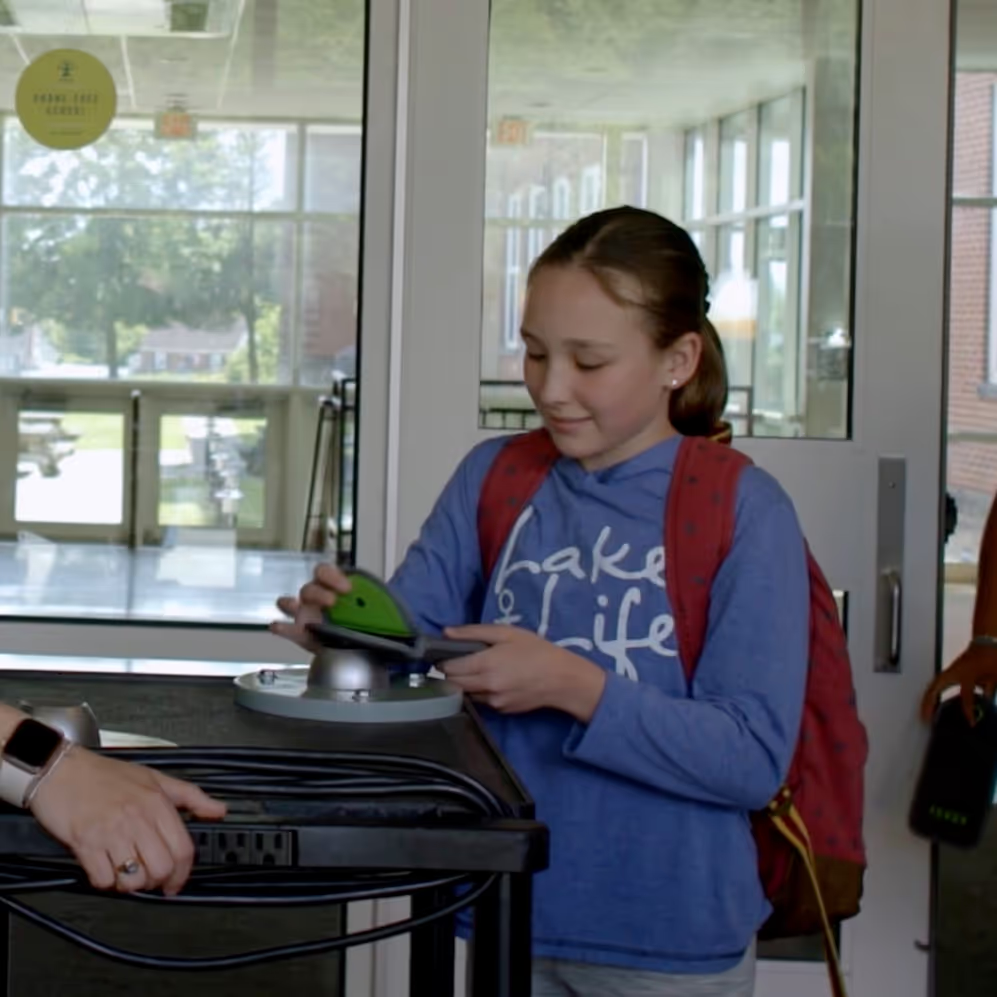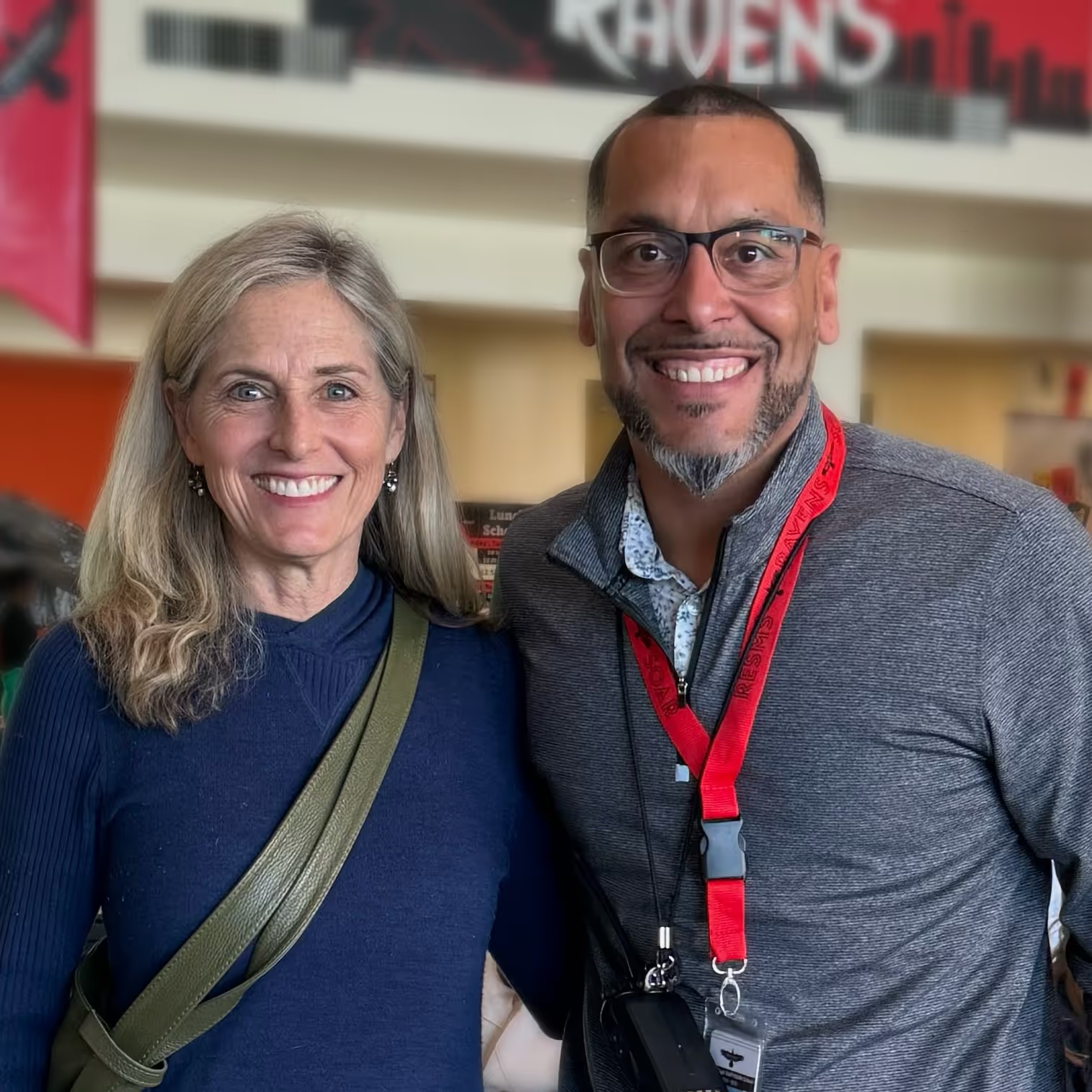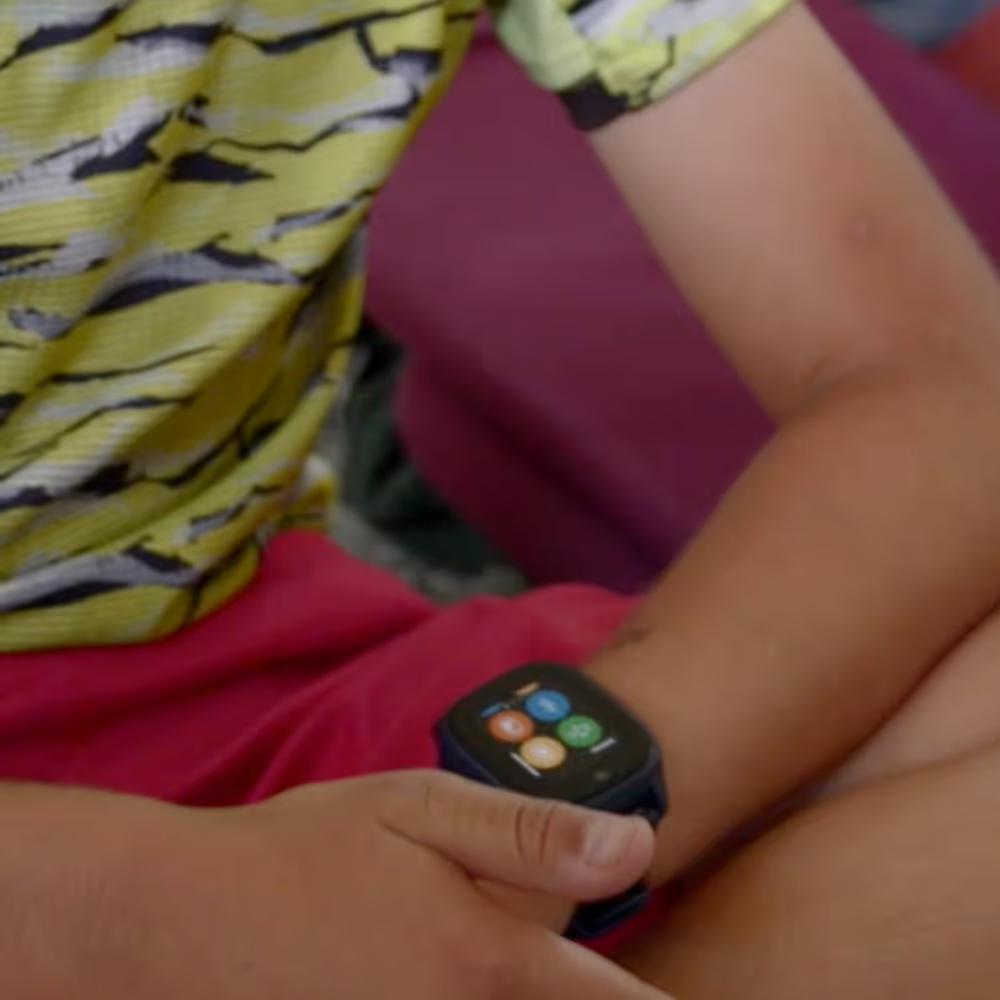


First, I want to take a minute to thank everyone for subscribing and all the emails and support regarding the launch of the Screenagers Podcast last week. We hit the #1 spot in Apple Podcasts’ “Parenting” category, a subset of their “Kids & Family” section. I am busily editing many more episodes. Here is the link to subscribe. As intended, many of you listened with your kids and said the episodes were a great launching point for discussions.
Today I want to talk about how we can help our kids — off screens — build a sense of "Can Do" and "Can Help." I am talking about helping in the home — otherwise known as chores.
There is no denying that kids often gripe about doing chores. A person I very much respect gave me a helpful way to think about this fact. Tammy Fisher Huson, Ph.D., one of my favorite parent coaches and author of "Fearless Parenting" once told me, "I do the dishes, and I don't have a smile on my face — we can't expect that from our kids. It is key that we give them positive recognition when they complete the task because you get more of what you name. Even though they had to do it, we can still express gratitude."
Tammy is all about ensuring that we point out the positive actions our kids do. This can be challenging. Think how easy it is to say things such as, “Why do I have to ask so many times?” or “This floor is not swept well enough.”
As a parent, I realized that I was conflicted about how much I should be thanking my child for doing chores when, after all, it was their responsibility. Tammy helped me to see that taking the time to thank them is really important. Validating our kids and teens for the help they provide goes a long way in motivating them to want to be lifelong contributors.
By the way, we are currently finishing a new episode of the Screenagers Podcast about screen time rules with Dr. Fisher Huson as my guest. Tammy is someone I often have gone to for parenting insights, and I can’t wait to share the episode with you.
There are so many tasks, but I will stop here. If you have other suggestions, please go to the Screenagers Facebook page and share your ideas!
We NOW have a way for people to host online events during this time. We still strongly believe in the coming together as a group model for showing both movies, so these temporary online events will be here only while the social distancing is in place.
Click here if you are interested in hosting an ONLINE screening for your community.
Click here if you want to attend an ONLINE screening.
Subscribe to our podcast
Learn more about showing our movies in your school or community!
Join Screenagers filmmaker Delaney Ruston MD for our latest Podcast

Learn more about our Screen-Free Sleep campaign at the website!
Our movie made for parents and educators of younger kids
Learn more about showing our movies in your school or community!
Learn more about showing our movies in your school or community!
Join Screenagers filmmaker Delaney Ruston MD for our latest Podcast

Learn more about our Screen-Free Sleep campaign at the website!
Our movie made for parents and educators of younger kids
Join Screenagers filmmaker Delaney Ruston MD for our latest Podcast
As we’re about to celebrate 10 years of Screenagers, we want to hear what’s been most helpful and what you’d like to see next.
Please click here to share your thoughts with us in our community survey. It only takes 5–10 minutes, and everyone who completes it will be entered to win one of five $50 Amazon vouchers.
First, I want to take a minute to thank everyone for subscribing and all the emails and support regarding the launch of the Screenagers Podcast last week. We hit the #1 spot in Apple Podcasts’ “Parenting” category, a subset of their “Kids & Family” section. I am busily editing many more episodes. Here is the link to subscribe. As intended, many of you listened with your kids and said the episodes were a great launching point for discussions.
Today I want to talk about how we can help our kids — off screens — build a sense of "Can Do" and "Can Help." I am talking about helping in the home — otherwise known as chores.
There is no denying that kids often gripe about doing chores. A person I very much respect gave me a helpful way to think about this fact. Tammy Fisher Huson, Ph.D., one of my favorite parent coaches and author of "Fearless Parenting" once told me, "I do the dishes, and I don't have a smile on my face — we can't expect that from our kids. It is key that we give them positive recognition when they complete the task because you get more of what you name. Even though they had to do it, we can still express gratitude."
Tammy is all about ensuring that we point out the positive actions our kids do. This can be challenging. Think how easy it is to say things such as, “Why do I have to ask so many times?” or “This floor is not swept well enough.”
As a parent, I realized that I was conflicted about how much I should be thanking my child for doing chores when, after all, it was their responsibility. Tammy helped me to see that taking the time to thank them is really important. Validating our kids and teens for the help they provide goes a long way in motivating them to want to be lifelong contributors.
By the way, we are currently finishing a new episode of the Screenagers Podcast about screen time rules with Dr. Fisher Huson as my guest. Tammy is someone I often have gone to for parenting insights, and I can’t wait to share the episode with you.
There are so many tasks, but I will stop here. If you have other suggestions, please go to the Screenagers Facebook page and share your ideas!
We NOW have a way for people to host online events during this time. We still strongly believe in the coming together as a group model for showing both movies, so these temporary online events will be here only while the social distancing is in place.
Click here if you are interested in hosting an ONLINE screening for your community.
Click here if you want to attend an ONLINE screening.
Subscribe to our podcast
Sign up here to receive the weekly Tech Talk Tuesdays newsletter from Screenagers filmmaker Delaney Ruston MD.
We respect your privacy.
First, I want to take a minute to thank everyone for subscribing and all the emails and support regarding the launch of the Screenagers Podcast last week. We hit the #1 spot in Apple Podcasts’ “Parenting” category, a subset of their “Kids & Family” section. I am busily editing many more episodes. Here is the link to subscribe. As intended, many of you listened with your kids and said the episodes were a great launching point for discussions.
Today I want to talk about how we can help our kids — off screens — build a sense of "Can Do" and "Can Help." I am talking about helping in the home — otherwise known as chores.
There is no denying that kids often gripe about doing chores. A person I very much respect gave me a helpful way to think about this fact. Tammy Fisher Huson, Ph.D., one of my favorite parent coaches and author of "Fearless Parenting" once told me, "I do the dishes, and I don't have a smile on my face — we can't expect that from our kids. It is key that we give them positive recognition when they complete the task because you get more of what you name. Even though they had to do it, we can still express gratitude."
Tammy is all about ensuring that we point out the positive actions our kids do. This can be challenging. Think how easy it is to say things such as, “Why do I have to ask so many times?” or “This floor is not swept well enough.”
As a parent, I realized that I was conflicted about how much I should be thanking my child for doing chores when, after all, it was their responsibility. Tammy helped me to see that taking the time to thank them is really important. Validating our kids and teens for the help they provide goes a long way in motivating them to want to be lifelong contributors.
By the way, we are currently finishing a new episode of the Screenagers Podcast about screen time rules with Dr. Fisher Huson as my guest. Tammy is someone I often have gone to for parenting insights, and I can’t wait to share the episode with you.
There are so many tasks, but I will stop here. If you have other suggestions, please go to the Screenagers Facebook page and share your ideas!
We NOW have a way for people to host online events during this time. We still strongly believe in the coming together as a group model for showing both movies, so these temporary online events will be here only while the social distancing is in place.
Click here if you are interested in hosting an ONLINE screening for your community.
Click here if you want to attend an ONLINE screening.
Subscribe to our podcast

This year, millions of students are experiencing a major shift: school days without phones, smartwatches, or other personal devices. Today we explore the wins, hurdles, and solutions helping schools succeed. We also share our resources that you can use to support technology policy changes in your schools.
READ MORE >
I recently sat down with middle school principal Zach at his school in Washington State. We talked about the challenges Zach and his team faced in his early years as principal when students used phones during school, and how he brought about a powerful transformation by having phones and smartwatches put away in locked pouches for the whole school day. In today’s blog, to raise awareness of the challenges, I share five real examples from Zach of the troubling ways students use phones at school to be unkind.
READ MORE >
It is with great pleasure that I share with you today a piece that Lisa Tabb and I did for Jonathan Haidt's (Author of The Anxious Generation) and researcher Zack Rausch's Substack blog — After Babel. In it, we discuss the rise in use of smartwatches in elementary schools and the problems they pose. There is a real cost to arming (pun intended) our kids with these devices and sending them to school. Now is the time to stop and fully address this topic and ensure that schools become smartwatch and phone-free.
READ MORE >for more like this, DR. DELANEY RUSTON'S NEW BOOK, PARENTING IN THE SCREEN AGE, IS THE DEFINITIVE GUIDE FOR TODAY’S PARENTS. WITH INSIGHTS ON SCREEN TIME FROM RESEARCHERS, INPUT FROM KIDS & TEENS, THIS BOOK IS PACKED WITH SOLUTIONS FOR HOW TO START AND SUSTAIN PRODUCTIVE FAMILY TALKS ABOUT TECHNOLOGY AND IT’S IMPACT ON OUR MENTAL WELLBEING.
